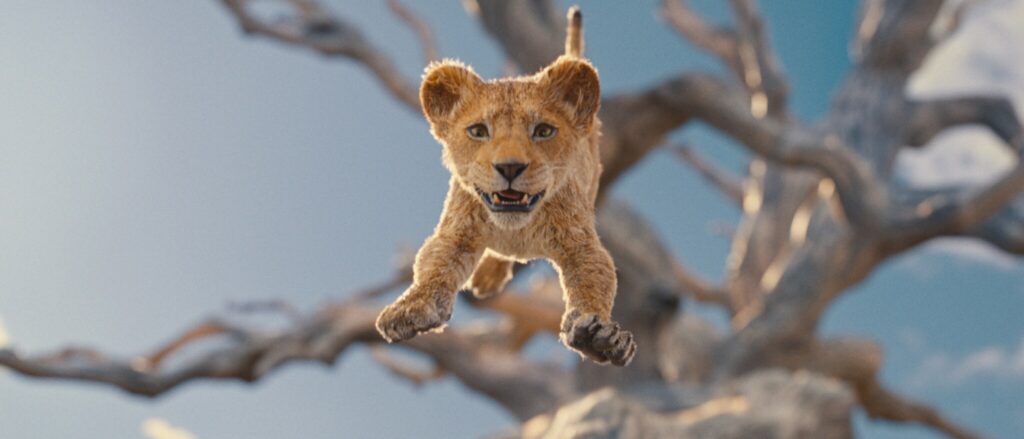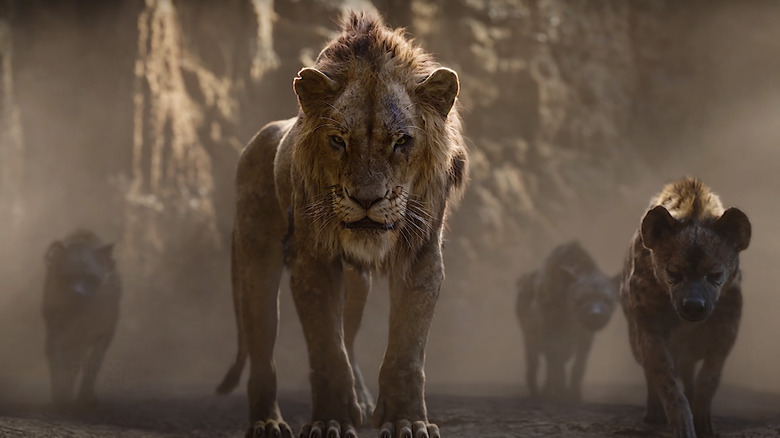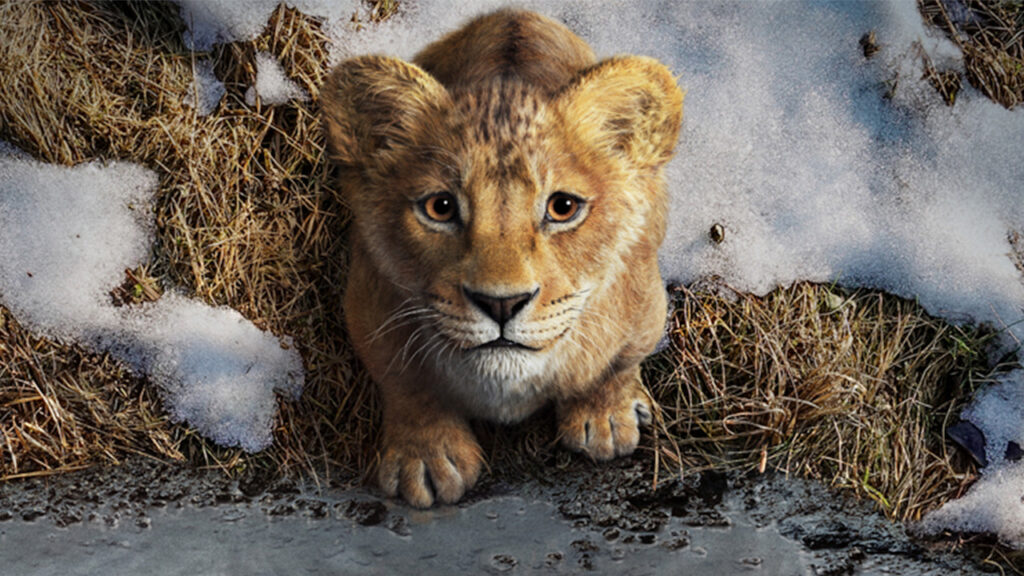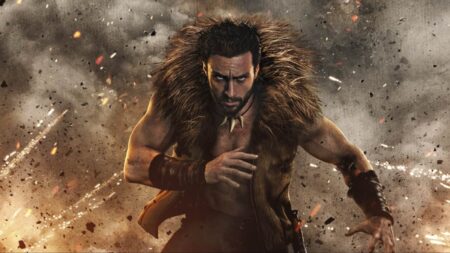The prequel to “Moonlight,” directed by Barry Jenkins, has excellent vocals and music by Lin-Manuel Miranda. It also features the signature touches of its director.
Whatever your opinion of Disney’s most recent photorealistic computer-generated imagery film, “Mufasa: The Lion King,” you must admit that the technology has advanced since 2019’s “The Lion King.” The main reason that the 1994 animated film’s adaptation was unwatchable was because the animation was so dull. I couldn’t differentiate Simba from his father, Mufasa, because they all had the same appearance, and their expressionless features looked like they had been permanently Botoxed.
This prequel transforms its lions. Indeed, they still have the appearance of genuine lions, which restricts the amount of imagination an animator may have brought to a drawing. However, Mads Mikkelsen’s portrayal of Kiros, the evil white lion, is instantly identifiable when he grins at the camera. It forced me to search for any visual cues of the actors performing their parts, which is what I always do when I see an animated film. I refer to that as progress.

The plot is simple: Mufasa’s trusted mandrill friend, Rafiki (John Kani), tells the origin story of Mufasa (Aaron Pierre) and his friend Taka (Kelvin Harrison Jr.) to Simba’s daughter, Kiara (Blue Ivy Carter). Kiara’s father is once again played by Donald Glover; her mother, Nala, is reprised by Blue Ivy’s real-life mother, Beyoncé Knowles-Carter. The late James Earl Jones didn’t reprise his role as Mufasa, but the film is dedicated to him.
At first, the babysitters were warthog Puumba (Seth Rogen) and meerkat Timon (Billy Eichner), who intended to entertain Kiara with stories of their antics. Rafiki takes over as their stories are obviously made up and smell bad on ice.
We find out that Masego (Keith David) and Afia (Anika Noni Rose) were the parents of Mufasa. After a protracted drought, a heavy downpour carried him away from his family. Taka, a lion from a different pride, saves him. Taka and his mother, Eshe (Thandiwe Newton), have a soft spot for the cub, whom Taka’s father, Obasi (Lennie James), calls “a stray.”
Meanwhile, Kiros and his crew of white lions are laying waste to every village of animals. This conquest is to ensure that Kiros is the “ruler of everything the light touches,” a description you’ll recall Mufasa said to Simba in the original “The Lion King.” Kiros also has revenge in mind, as his only son was killed in a previous altercation with Mufasa and Taka.

The tale is kept going by screenwriter Jeff Nathanson, who also wrote “Catch Me If You Can” and adapted the 2019 version of “The Lion King,” but he makes a big mistake. Timon and Puumba interrupt the story every now and then. I’ll be honest: I detest these characters. In the first film, I detested them and found the song “Hakuna Matata” to be unbearable. As a result, I snarled like Kiros anytime somebody made a statement (the song “Hakuna Mufasa” was once mentioned).

I anticipate that “Mufasa: The Lion King,” one of just two family-friendly films released the week before Christmas, will bring in a ton of cash. Its predecessor, which was awful, made nearly $1.6 billion globally! In any case, a film like this is impervious to criticism. I doubt that tired parents who are trying to divert their children for two hours will care that Barry Jenkins is the director of this movie.
Yes, that Barry Jenkins, the Oscar-winning director of “Moonlight,” “If Beale Street Could Talk,” and the series “The Underground Railroad.” His name is on two Christmastime offerings, as he also wrote the excellent boxing movie, “The Fire Inside,” which opens Dec. 25. The announcement that he took this project wreaked havoc, with some film buffs rending their garments over the fact that such an esteemed director would helm a franchise entry.

Considering the Marvel movie bad luck that befell other well-known and respected directors like Sam Raimi and Chloe Zhao, some of that handwringing was understandable. Indeed, “Mufasa: The Lion King” occasionally looks like a battle is being waged between Jenkins’s sensibilities and Disney’s desire to make everything canned and familiar.
Though in a condensed version, I was able to see the director’s trademarks most of the time. There are some views where characters are staring right at us, shattering the fourth wall. Another Jenkins trademark was the length of several of the camera’s sweeping landscape shots, which surprised me. Additionally, there are several skillfully written action scenes and dangerous moments in this film. There are some very impressive underwater animations.
In case I forgot, Lin-Manuel Miranda is the singer of the songs in this recent version of “The Little Mermaid.” They range from mediocre to quite catchy. Additionally, there is a discernible effort to match these songs to those from the first movie. For instance, we have a counterpart to “I Just Can’t Wait to Be King.” Mikkelsen sings the movie’s best number, the big villain song, which is just as contentious as “Moana”‘s crab song, “Shiny.” Miranda’s choice of a well-known phrase in the chorus to mock his detractors is admirable, I must say.
I watched this film in 3-D and IMAX, although half-blind critics like me don’t need the latter. Disney provides us a classic, real-life antagonist to fight, and the enormous scale made “Mufasa: The Lion King” a fun show. As far as franchise entries go, it’s fairly watchable and has good voice acting.
★★★
MUFASA: THE LION KINGDirected by Barry Jenkins. Written by Jeff Nathanson. Starring Aaron Pierre, Kelvin Harrison, Jr., Mads Mikkelsen, John Kani, Blue Ivy Carter, Keith David, Anika Noni Rose, Billy Eichner, Seth Rogen, Lennie James, Thandiwe Newton, Donald Glover, Beyoncé Knowles-Carter. At AMC Boston Common, Landmark Kendall Square, Alamo Drafthouse Seaport, AMC Causeway, suburbs. 119 minutes. PG (intense action and peril)








